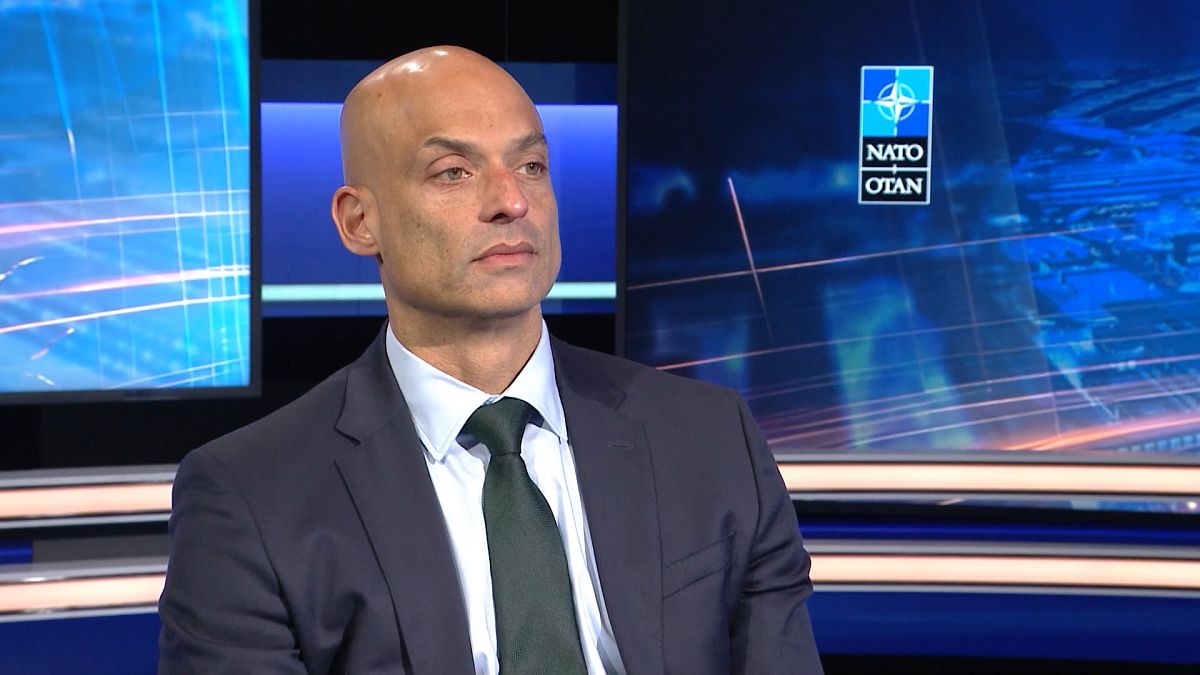Mississippi
Political rejection in Mississippi led incoming Wake superintendent back to NC

Incoming Wake County Public School System Superintendent Robert P. Taylor was recently rejected for the post of state superintendent in Mississippi, after a surprising political scuffle — a losing battle that paved the way for his return to North Carolina, where he has built his career as an educator.
That saga started late last year, when the Mississippi State Board of Education voted to hire Taylor to lead the state’s public schools following a formal national search.
What ensued was a battle that some said was over perceptions of race and racism in a political climate hostile to the topics.
Taylor moved to Jackson, Miss., in January and began visiting schools across the state. The day before the state’s senate was scheduled to vote to approve Taylor’s appointment, a Republican Mississippi state senator, Chris McDaniel, blasted Taylor’s views on racism, admonishing Democrats who supported the pending appointment.
“Robert Taylor once called Mississippi the most racist state in America,” McDaniel wrote on his professional Facebook page. “He is a Democrat, a supporter of critical race theory, affirmative action and the removal of historical monuments — embracing the woke and liberal culture.”
The Republican-led Mississippi Senate denied Taylor’s confirmation by a 31-21 vote. McDaniel said it was in part a rejection of “liberalism in institutions.”
Mississippi’s loss was Wake County’s gain. Taylor was selected Tuesday to lead North Carolina’s largest school system. He’ll be sworn in on Oct. 1.
Taylor will oversee a budget of more than $2 billion and about 159,000 students, grappling with overcrowded schools, staffing shortages and post-pandemic learning recovery.
Taylor is a Mississippi native, but North Carolina is a more familiar professional home. Taylor was deputy superintendent of state schools from 2021-2022 and was superintendent of Bladen County Schools from 2011 to early 2021. Prior to that, he was an administrator and educator in Clinton City Schools and Cumberland County Schools.
North Carolina education leaders welcomed him back with open arms. Republican State Superintendent Catherine Truitt, who praised Taylor before he left for Mississippi, said his return to North Carolina was “the best news I’ve gotten in a long time.”
“He’s been a champion of public schools, as well as the students who partake in them,” Truitt said. “He knows what it’s like to teach in public schools… and as I know first hand he knows what it’s like to lead a state agency.”
Taylor declined an interview with WRAL News through school system spokeswoman Lisa Luten.
‘The most racist state’
In his Facebook post, McDaniel, was referring to a 2020 interview Taylor did with the Center for Black Students at the University of Southern Mississippi, his alma mater. He was talking about writing for the Black student newspaper back in the 1980s.
“The Unheard Word, in my opinion, recognized that The University of Southern Mississippi was in the most racist state in the Union,” Taylor, who is Black and a Democrat, said in that interview.
Mississippi Sen. David Jordan, a Democrat, supported Taylor and was surprised he wasn’t confirmed. He called Taylor a native son who had done well.
“For some reason, things changed, just like overnight,” Jordan said. He said critical race theory never came up in conversations with Taylor, and the criticism from McDaniel was out of the blue. “I would hate to think that it was racism, but it looked like it was something [like] that.”
Critical race theory is an academic approach to analyzing history or current times through the lens of how race may play a role. Oftentimes, it involves examining the possibility of systemic racism contributing to different problems. It’s not a set of beliefs, though critical race theorists may draw similar conclusions.
Conservatives have opposed critical race theory, out of fear it will cause racial divisiveness.
Taylor’s critics in Mississippi cited other reasons for his rejection. They didn’t like the fact he hadn’t been an educator in Mississippi.
Taylor is from Laurel, Miss., and attended the University of Southern Mississippi but taught in North Carolina. The state’s previous superintendent, Carey Wright, wasn’t from Mississippi and had spent her education career in the Washington, D.C., area before moving to Mississippi to be state superintendent. She retired in 2022 and was praised by lawmakers for her tenure.
Critics also pointed to Bladen County Schools’ school performance. Grades fluctuated and didn’t measurably improve during Taylor’s time as superintendent. Test scores wavered up and down, although most schools met or exceeded student growth expectations in any given year. Mississippi lawmakers cited school performance letter grades when referring to school performance, although Mississippi assigns letter grades to schools under different criteria. In Mississippi, they more heavily favor growth instead of raw test scores, in comparison to North Carolina.
“I don’t have the data that supports the performance and the underperforming schools being improved,” Sen. Daniel Sparks, a Republican, said before the vote when explaining his reason for opposing Taylor’s nomination.
Mississippi’s education board also didn’t make finalists public before voting to hire Taylor, which was a sore point for some opponents. Nonetheless, Taylor’s nomination had received the support of some Republicans and passed through a subcommittee before going to the Senate floor.
During the Senate vote, Sen. Hob Bryan, a Democrat, urged lawmakers to confirm Taylor and said lawmakers were upset with common procedures in the job search process.
“I know of nothing in his conduct or in his background that would even come close to disqualifying him to serve, or that this body can articulate,” Bryan said during the debate.
Changing political environment
David McLennan, a political science professor at Meredith College in Raleigh, said politics have interfered with hires, especially in higher education, when conversations about race come up. That’s not as true in Wake County as it may be in Mississippi, he said.
“I think the comments he made in 2020, although most people would say it was a pretty accurate statement, in the political environment in which we live, that can lead to you being labeled as ‘woke.’ And ‘woke’ is anything that people don’t like,” McLennan said, referring to the mindset of people who use the word as a derogatory statement. “And so I think 10 years ago it would not have cost him his job. But in the post-2020 environment, I think it makes it more difficult.”
McLennan does expect some pushback in Wake County against Taylor among the most conservative residents.
But the endorsement from Truitt — the state’s top education official who was previously an education adviser to former Republican Gov. Pat McCrory — is an important affirmation for Taylor after the Mississippi debacle. Truitt appointed Taylor to be her deputy superintendent when she was elected in 2020.
“Rob is a listener,” she told WRAL. “Rob is someone who will pay attention to what people are saying and be the kind of leader who brings people together and seeks to understand first … which I think is critical for someone leading a district the size of Wake County Public Schools.”
On Tuesday, Wake school board Chairwoman Lindsay Mahaffey acknowledged the presence of national political issues worming their way into education and said the board couldn’t have hired someone everyone would have been excited about.
At the same time, all nine school board members said they were excited for Taylor’s hire, including the board’s two Republicans.
Mahaffey said she was “confident in his ability to lead the district.”
In the 2020 Mississippi interview, Taylor urged “open dialogues.”
“Perhaps for the first time in a long time, this nation is open to addressing its sordid past and making real change as we move forward, and I believe that Black college students will be at the center of this change,” Taylor said. “I would continue to ask Black college students to be politically active, regardless of the philosophy or position. I would ask that they open dialogues with those they see different than themselves, and work to hear what they are saying.”
“I want them to understand the barriers to our moving forward are so much more subtle than ‘Bull’ Conner standing in the schoolhouse door,” he added, referring to the former Birmingham, Alabama, public safety commissioner who opposed the civil rights movement and enforced legal segregation in the 1950s and 60s. “This subtleness will require an approach vastly different than what has been used in the past.”
WRAL Anchor/Reporter Mark Boyle contributed to this report.

Mississippi
Minor earthquake recorded in Mississippi on Thanksgiving

MADISON COUNTY, Miss. (WJTV) – A minor earthquake was recorded in Mississippi early Thanksgiving morning.
According to the United States Geological Survey (USGS), the 2.5-magnitude earthquake occurred southeast of Canton near the Ross Barnett Reservoir around 1:48 a.m. on Thursday, November 28.
Officials with the Michigan Technological University said earthquakes below 2.5-magnitude are “generally not felt.” So far, there are no reports of any damage in Madison County.
The last earthquake that occurred in Madison County was a 2.8-magnitude earthquake in 2019.
Mississippi
Thanksgiving on Mississippi Public Broadcasting Think Radio, set to air on Thursday, November 28th

MISSISSIPPI (KTVE/KARD) — For Thanksgiving, on Thursday, November 28, 2024, the Mississippi Public Broadcasting Radio will air a special programming.
Photo courtesy of Mississippi Public Broadcasting
According to officials, “Turkey Confidential” and “Feasting with the Great American Songbook: An Afterglow Thanksgiving Special” will run from 9 a.m. to 1 p.m. Francis Lam will be taking calls and help those in need of Thanksgiving cooking tips for the biggest cooking day of the year.
According to officals, “Feasting with the Great American Songbook: An Afterglow Thanksgiving Special” will explore classic jazz and popular songs about food by singers like Louis Armstrong, Louis Jordan, and Fats Waller, perfect for listening while sitting at the table.
Mississippi
Southeast Mississippi Christmas Parades 2024 | WKRG.com

MISSISSIPPI (WKRG) — It’s beginning to look a lot like Christmas on the Gulf Coast and that means Santa Claus will be heading to town for multiple parades around the area.
WKRG has compiled a list of Christmas parades coming to Southeast Mississippi.
Christmas on the Water — Biloxi
- Dec. 7
- 6 p.m.
- Begins at Biloxi Lighthouse and will go past the Golden Nugget
Lucedale Christmas Parade
-

 Science1 week ago
Science1 week agoTrump nominates Dr. Oz to head Medicare and Medicaid and help take on 'illness industrial complex'
-

 Health5 days ago
Health5 days agoHoliday gatherings can lead to stress eating: Try these 5 tips to control it
-

 Health3 days ago
Health3 days agoCheekyMD Offers Needle-Free GLP-1s | Woman's World
-

 Science2 days ago
Science2 days agoDespite warnings from bird flu experts, it's business as usual in California dairy country
-

 Technology2 days ago
Technology2 days agoLost access? Here’s how to reclaim your Facebook account
-

 Science1 week ago
Science1 week agoAlameda County child believed to be latest case of bird flu; source unknown
-

 Sports1 week ago
Sports1 week agoBehind Comcast's big TV deal: a bleak picture for once mighty cable industry
-

 Entertainment16 hours ago
Entertainment16 hours agoReview: A tense household becomes a metaphor for Iran's divisions in 'The Seed of the Sacred Fig'















